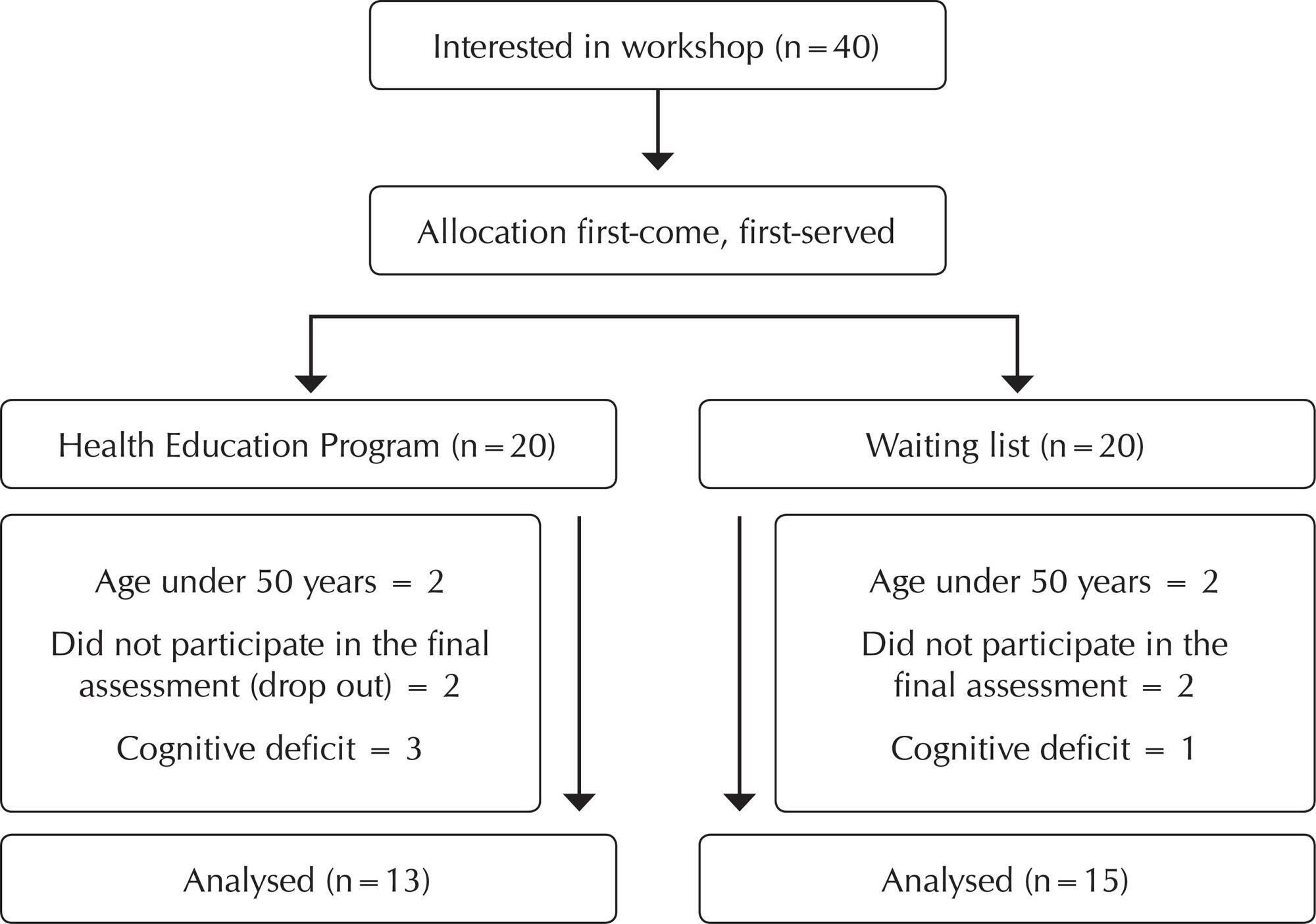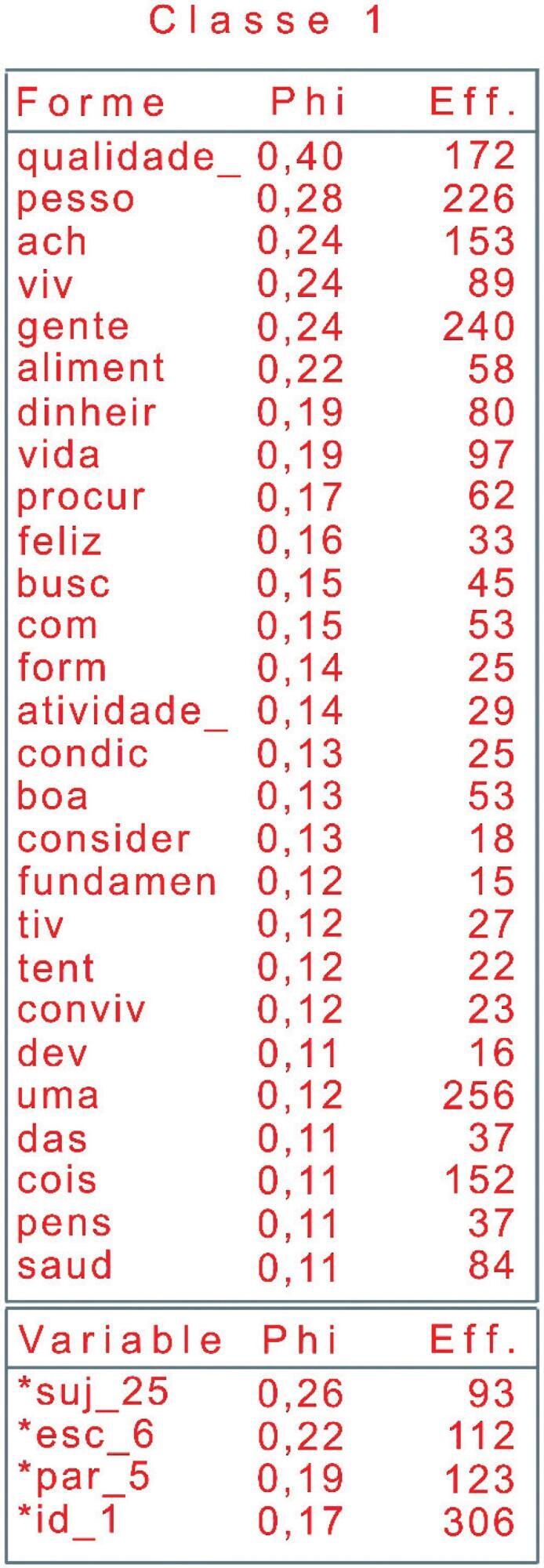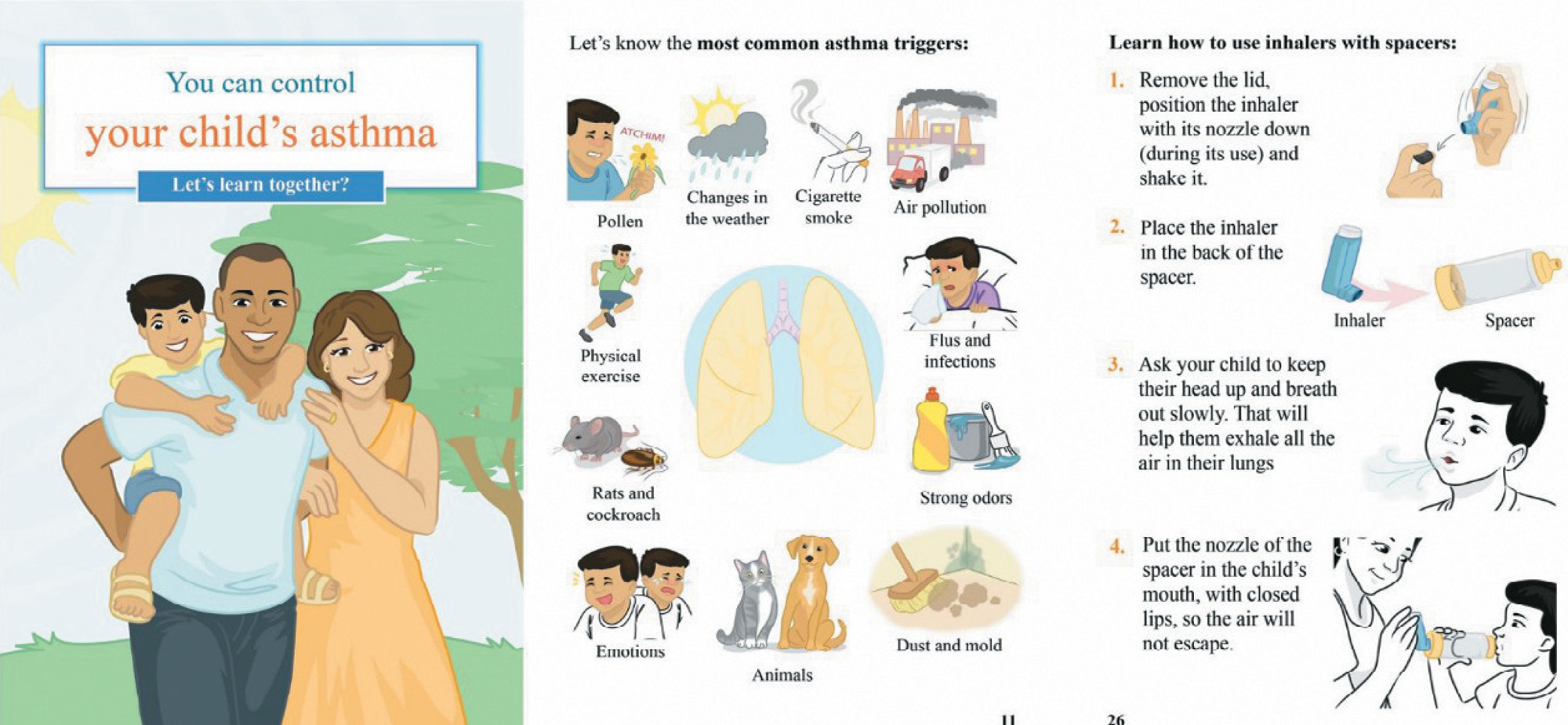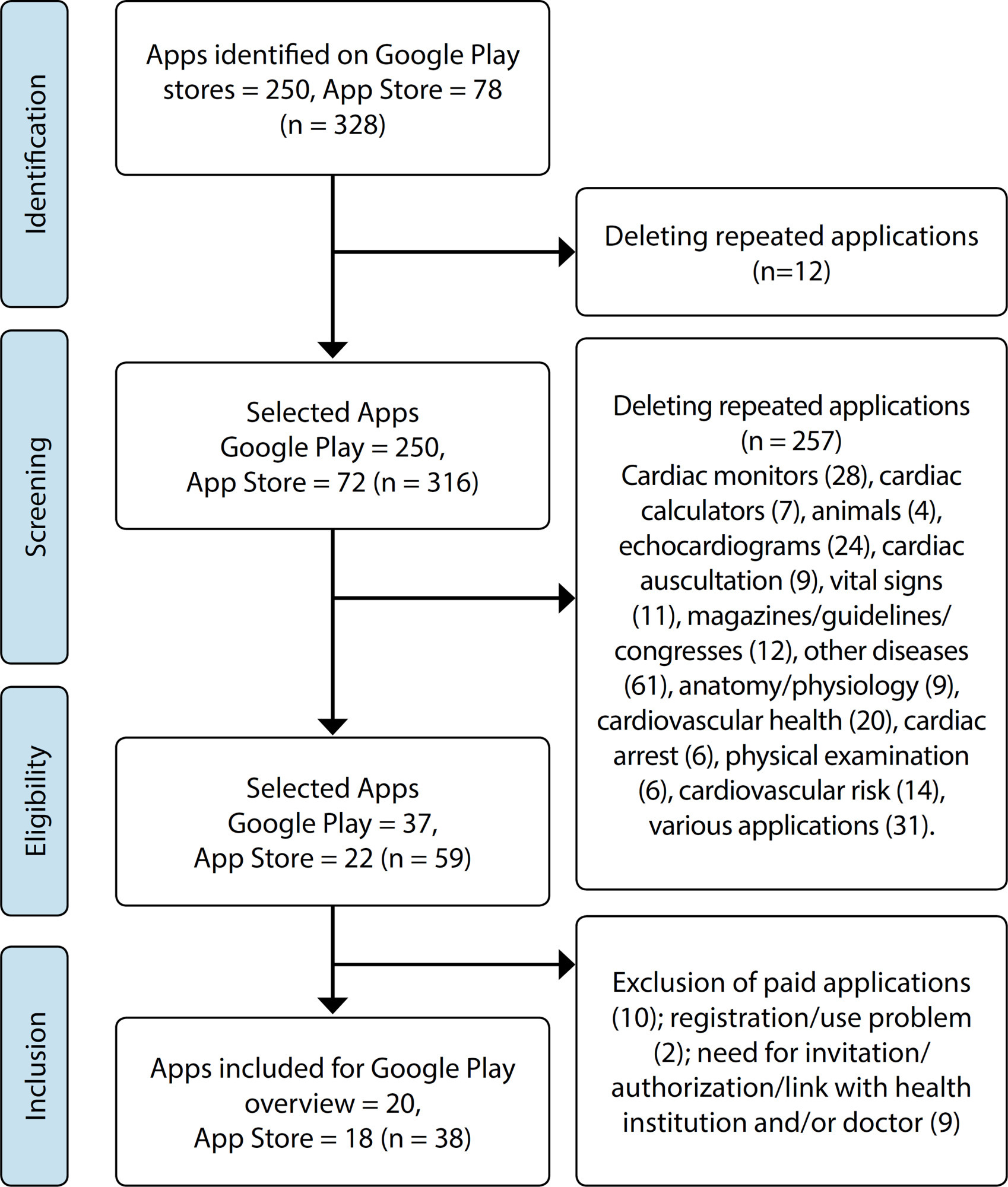-
RESEARCH01-01-2017
Hospitalization of people 50 years old or older living with HIV/AIDS
Revista Brasileira de Enfermagem. 2017;70(4):845-850
Abstract
RESEARCHHospitalization of people 50 years old or older living with HIV/AIDS
Revista Brasileira de Enfermagem. 2017;70(4):845-850
DOI 10.1590/0034-7167-2017-0113
Views0See moreABSTRACT
Objective:
Identify the rate and predictive factors of the hospitalization of people living with HIV/AIDS (PLHA), aged 50 years or older.
Method:
A quantitative, cross-sectional study was conducted at two inpatient units specialized in infectious diseases in a teaching hospital. Data were gathered through individual interviews between August 2011 and February 2015. All ethical precepts were followed.
Results:
Of the 532 admitted patients, 95 were PLHA 50 years old or older; 30.5% were admitted 3 to 4 times after being diagnosed with HIV/AIDS.
Conclusion:
Rate of hospitalization was 17.8%, and being 50 to 60 years old was a protective factor against hospitalization.
-
RESEARCH01-01-2017
Urinary tract infection: a cohort of older people with urinary incontinence
Revista Brasileira de Enfermagem. 2017;70(4):838-844
Abstract
RESEARCHUrinary tract infection: a cohort of older people with urinary incontinence
Revista Brasileira de Enfermagem. 2017;70(4):838-844
DOI 10.1590/0034-7167-2017-0141
Views0See moreABSTRACT
Objective:
To evaluate epidemiological aspects of urinary tract infection in older patients with urinary incontinence living in long-term care institutions in Belo Horizonte. Method: Concurrent cohort held from April 1st to October 1st, 2015. The study was conducted in two long-term care institutions in the city of Belo Horizonte, Minas Gerais, with 84 incontinent older people.
Results:
Cumulative incidence of urinary tract infection was 19% (95% CI: 7.83-23.19) and the incidence density was 3.6 cases/100 people-month of follow-up period. The variables Bacteriuria and Institution presented statistical association with the occurrence of urinary tract infection.
Conclusion:
It is observed that the incidence of urinary tract infection in the study was smaller than in other similar international and national studies, however this is an important world health problem for the older population, with impact on mortality of these individuals.
-
RESEARCH01-01-2017
Geriatric care: ways and means of providing comfort
Revista Brasileira de Enfermagem. 2017;70(4):830-837
Abstract
RESEARCHGeriatric care: ways and means of providing comfort
Revista Brasileira de Enfermagem. 2017;70(4):830-837
DOI 10.1590/0034-7167-2016-0636
Views0See moreABSTRACT
Objective:
To know the ways and means of comfort perceived by the older adults hospitalized in a medical service.
Method:
Ethnographic study with a qualitative approach. We conducted semi-structured interviews with 22 older adults and participant observation of care situations.
Results:
The ways and means of providing comfort are centered on strategies for promoting care mobilized by nurses and recognized by patients(clarifying/informing, positive interaction/communication, music therapy, touch, smile, unconditional presence, empathy/proximity relationship, integrating the older adult or the family as partner in the care, relief of discomfort through massage/mobilization/therapy) and on particular moments of comfort (the first contact, the moment of personal hygiene, and the visit of the family), which constitute the foundation of care/comfort.
Final considerations:
Geriatric care is built on the relationship that is established and complete with meaning, and is based on the meeting/interaction between the actors under the influence of the context in which they are inserted. The different ways and means of providing comfort aim to facilitate/increase care, relieve discomfort and/or invest in potential comfort.
-
RESEARCH01-01-2017
Elderly who take care of elderly: a study on the Frailty Syndrome
Revista Brasileira de Enfermagem. 2017;70(4):822-829
Abstract
RESEARCHElderly who take care of elderly: a study on the Frailty Syndrome
Revista Brasileira de Enfermagem. 2017;70(4):822-829
DOI 10.1590/0034-7167-2016-0474
Views0See moreABSTRACT
Objective:
Identifying prevalence of frailty in elderly caregivers inserted in a high social vulnerability context and its correlation with sociodemographic and health aspects.
Method:
Descriptive, correlational and cross-sectional study. Forty elderly caregivers were evaluated with: questionnaire for caregiver characterization, Mini Mental State Examination, Katz Index, Lawton instrumental activities of daily living scale, Geriatric Depression Scale and the frailty phenotype proposed by Fried. Interviews were conducted at their residences and scheduled in advance. All ethical precautions were observed. Data were analyzed with the Stata statistical program version 11.0.
Results:
10% of elderly caregivers were frail. There was a significant correlation between frailty and sex, instrumental activities of daily living and cognition.
Conclusion:
Female caregivers, partially dependent individuals regarding instrumental activities of daily living and with worse cognitive state deserve a special attention from health services.
-
01-01-2017
Effects of a Health Education program on cognition, mood and functional capacity
Revista Brasileira de Enfermagem. 2017;70(4):814-821
Abstract
Effects of a Health Education program on cognition, mood and functional capacity
Revista Brasileira de Enfermagem. 2017;70(4):814-821
DOI 10.1590/0034-7167-2016-0638
Views0See moreABSTRACT
Objective:
Assess the effect of a Health Education (HE) program on cognition, mood and functional capacity of participants in a University of The Third Age (U3A).
Method:
Controlled clinical trial. The HE Program consisted of 10 sessions with group dynamics, including orientations on disease prevention and cognitive stimulation exercises, lasting four months. Intervention Group (IG) n=13; and Control Group (CG) n=15. All were assessed at the start and end of the study, using Addenbrook´s Cognitive Examination-Revised (ACE-R), Beck Depression and Anxiety Inventory (BDI/BAI) and Functional Independence Measure (FIM).
Results:
Significant improvements were observed for the IG when comparing the total ACE-R score (p=0.001) and memory domain (p=0.011) before and after the intervention. For the CG, improvement was found in the memory domain only (p=0.027).
Conclusion:
a HE intervention program benefits the improvement in cognitive performance, particularly the memory of adults and active elderly who participated in a U3A.

-
01-01-2017
Efeitos de um programa de Educação em Saúde na cognição, humor e capacidade funcional
Revista Brasileira de Enfermagem. 2017;70(4):814-821
Abstract
Efeitos de um programa de Educação em Saúde na cognição, humor e capacidade funcional
Revista Brasileira de Enfermagem. 2017;70(4):814-821
DOI 10.1590/0034-7167-2016-0638
Views0See moreRESUMEN
Objetivo:
Evaluar los efectos de la Educación para la Salud (ES) en la cognición, humor y capacidad funcional de participantes de una Universidad Abierta de la Tercera Edad.
Método:
Se trata de un ensayo clínico controlado. El Programa de Educación para la Salud consistió en 10 sesiones con dinámicas de grupo, con orientaciones sobre prevención de enfermedades y ejercicios de estimulación cognitiva, con duración de 4 meses. Participaron 13 personas en el grupo de intervención (GI) y 15 en el grupo control (GC). Todos fueron evaluados al inicio y al término del estudio con los instrumentos Addenbrook´s Cognitive Examination-Revised (ACE-R), Inventario de Depresión y Ansiedad de Beck (BDI/BAI) y con la Medida de la Independencia Funcional (FIM).
Resultados:
se observaron mejoras significativas en el GI cuando se compararon los resultados del ACE-R (p=0,001) y el dominio de la memoria (p=0,001) antes y después de la intervención. Para el GC fue encontrada una mejora significativa solamente en el dominio de la memoria (p=0.027).
Conclusión:
Los resultados sugieren que la intervención educativa estudiada tiene efecto beneficioso en el desempeño cognitivo de los participantes de la Universidad Abierta de la Tercera Edad.
-
RESEARCH01-01-2017
Social representations of older adults regarding quality of life
Revista Brasileira de Enfermagem. 2017;70(4):806-813
Abstract
RESEARCHSocial representations of older adults regarding quality of life
Revista Brasileira de Enfermagem. 2017;70(4):806-813
DOI 10.1590/0034-7167-2017-0097
Views0See moreABSTRACT
Objective:
to identify the social representations of older adults regarding quality of life, and to analyze the care practices adopted to promote it.
Method:
qualitative, exploratory, descriptive research, applying the Theory of Social Representations. Thirty older people from a Health Academy of Rio de Janeiro participated in the study. The software Alceste was used, and lexical analysis of data was performed.
Results:
social representations of quality of life are based on the social determinants of health; they evidence knowledge and practices of care by valuing physical activities. The practices promoting quality of life comprise healthy eating habits, daily physical exercise, social participation, interaction and socialization, accomplishment of leisure activities and daily tasks with independence and autonomy, and support and family contact.
Final considerations:
the elderly have a global understanding of the concept of quality of life, coordinate knowledge built in daily life and knowledge coming from the technical-professional field, which evidences the multidimensionality of the concept.

-
RESEARCH01-01-2017
Nursing diagnosis in older adults with chronic kidney disease on hemodialysis
Revista Brasileira de Enfermagem. 2017;70(4):800-805
Abstract
RESEARCHNursing diagnosis in older adults with chronic kidney disease on hemodialysis
Revista Brasileira de Enfermagem. 2017;70(4):800-805
DOI 10.1590/0034-7167-2017-0117
Views0See moreABSTRACT
Objective:
To identify the main nursing diagnoses (NSs) in older adult patients under hemodialysis treatment.
Method:
Exploratory research using case studies in data collection performed by interview and physical examination of older adults, in the first semester of 2016. Were included twenty-eight older adults undergoing chronic hemodialysis treatment who met the selection criteria. The analysis followed two steps (RISNER, 1990): Phase I – Data analysis and synthesis; and Phase II – Establishment of nursing diagnoses using the taxonomy of NANDA-I (2015).
Results:
The total of NSs was 110, averaging 3.9 per patient. It was listed seven different NSs, and both the Risk of infection and the Volume of excessive liquids appeared on all patients (28; 100%), and risk of electrolyte imbalance, in 26 (96.8%) older adults, being considered as main NSs.
Conclusion:
Such results can help systematize the care of older people who are undergoing hemodialysis treatment.
Search
Search in:
Nuvem de Tags
Enfermagem (930)Cuidados de Enfermagem (269)Atenção Primária à Saúde (239)Idoso (208)Educação em Enfermagem (151)Segurança do Paciente (150)Saúde Mental (145)Educação em Saúde (139)Estudos de Validação (131)Qualidade de Vida (104)Tecnologia Educacional (100)Promoção da Saúde (99)COVID-19 (91)Criança (91)Família (87)Enfermagem Pediátrica (86)Saúde do Trabalhador (86)Adolescente (85)Saúde Pública (82)Estudantes de Enfermagem (77)










